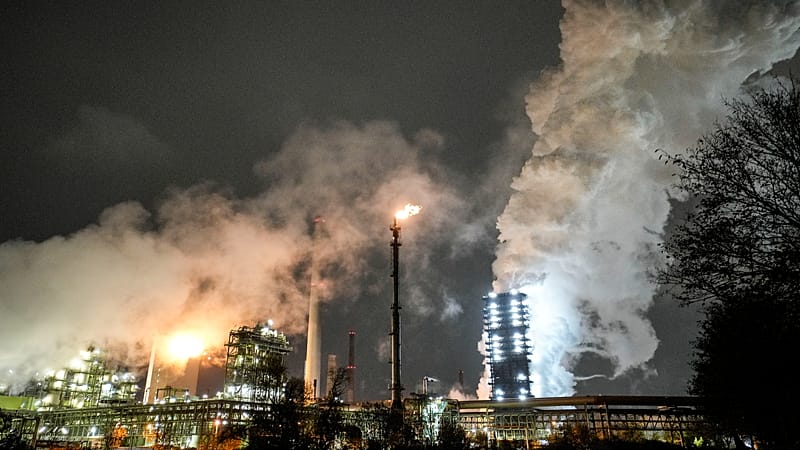Going green: Will high energy costs derail Europe's climate goals?

Europe’s transition to a low-carbon economy is losing momentum as prohibitively high electricity prices continue to undermine both household adoption of clean technologies and industrial competitiveness, according to Morningstar’s latest Electrification Observer.
While the European Union has pinned its decarbonisation strategy on electrifying key sectors — such as transport, heating, and heavy industry — the pace of change remains sluggish.
Despite generous subsidies and ambitious targets, the continent is on track to electrify only 25% of its total energy consumption by 2030, far short of the 32% needed to meet its climate commitments.
“Europe finds itself in a difficult bind,” said Tancrede Fulop, senior equity analyst at Morningstar. “It shoulders a disproportionate burden in the global effort to decarbonise, yet high electricity prices continue to deter progress. Technologies like heat pumps remain unaffordable for many households, while power-intensive sectors such as chemicals and steel face a structural loss of competitiveness versus the US and China.”
Industry squeezed, households stall
Electricity prices across Europe remain significantly above those in China and the US, a divergence exacerbated by post-2021 energy market turbulence.
Morningstar forecasts EU electricity consumption to grow at a tepid 1.1% compound annual rate between 2024 and 2030 — barely surpassing pre-COVID levels — compared to 1.4% in the US.
Structural factors such as network levies and high taxes are likely to keep prices elevated.
This puts traditional European industries at a disadvantage and slows adoption of electrification in households, despite policy support such as the EU’s carbon pricing extension to residential heating from 2027.
Heat pump deployment illustrates the challenge. Morningstar expects only 39 million heat pumps to be installed across the EU by 2030, well below the 60 million goal.
Residential electrification will inch up from 26% in 2023 to 28% by the end of the decade, leading to CO₂ emission cuts of just 1.7% per year — slower than the decline achieved over the past decade.
Data centres and electric vehicles bring only marginal gains
Data centres are emerging as a key source of new electricity demand. Morningstar expects their energy consumption to grow by 15% annually, reaching 182 terawatt-hours by 2030. Utilities with exposure to this trend — such as Portugal’s EDP — stand to benefit, alongside industrial firms like Schneider Electric.
However, much of the AI model training and hyperscale expansion is expected to remain in the US, where cheaper power and higher computing capacity remain a draw.
“Although we expect battery electric vehicles sales to account for 45% of auto sales in Europe by 2030, the electrification of transport in Europe will increase to only 5% by 2030,” Fulop said.
The net impact: CO₂ emissions from road transport are expected to fall by just 5% by 2030.
Chemical industry contracts, green hydrogen ambitions fade
The EU’s chemicals sector, already struggling with high energy costs, is forecast to shrink by 10% over the next five years.
Meanwhile, Morningstar has sharply revised down expectations for green hydrogen production, projecting just 0.6 megatonnes by 2030 — far below the EU’s 10 Mt target. High power prices render green hydrogen uncompetitive in most member states.
Despite this, Europe’s industrial champions still offer selective opportunities for investors. Efficiency-oriented firms with wide competitive advantages, such as Atlas Copco, are well placed to benefit from higher-for-longer power costs.
Global chemicals players with US exposure, such as Dow, stand to gain if Europe reduces some of its own chemical production. And Air Liquide, despite the weak hydrogen outlook, remains favourably positioned within the continent’s industrial decarbonisation push.
Political and policy pressure mounts
As the electrification shortfall becomes more apparent, political pressure is likely to build to delay or weaken key EU climate policies. Morningstar flags the scheduled 2026 phaseout of free industrial carbon allowances and the 2027 carbon pricing for residential heating as flashpoints.
Even the EU’s headline emissions goal — a 55% reduction by 2030 from 1990 levels — appears increasingly out of reach.
Morningstar forecasts a 43% decline under current trends, with electrification progress simply too slow to offset emissions from lagging sectors.
“Europe is stuck in an awkward in-between position: It incurs the costs associated with decarbonisation without achieving the scale of electrification needed to unlock growth,” Fulop wrote.
Patchwork outlook across Europe
Northern Europe, France, and the Iberian Peninsula remain the relative winners in the electrification transition.
Thanks to lower power prices, ample grid capacity, and abundant clean energy, these regions are attracting data centres and green industrial projects.
Yet investor optimism may already be overstretched. Spanish utilities, for instance, have significantly outperformed in 2025.
Overall, Europe faces the uncomfortable reality of paying the price for decarbonisation without fully capturing its benefits. With power prices expected to remain structurally high, the continent risks being stuck in an expensive and politically fragile transition — too costly to abandon, yet too slow to deliver.
Today

